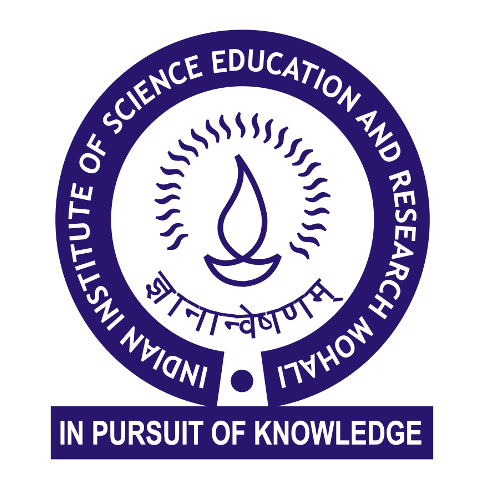Events Calendar
Fluoroalkylation Strategies for Medicinal Chemistry: from Deoxytrifluoromethylation to para-Selective C–H Functionalization
Thursday 06 November 2025, 05:00pm
Professor Ryan A. Altman, Purdue University, USA
Location : AB2-5A
About the Speaker: Ryan A. Altman is a Full Professor and holds the Steve and Lee Ann Taglienti Chair in Pharmacy with appointments in the Borch Department of Medicinal Chemistry and Molecular Pharmacology and the James Tarpo Jr. and Margaret Tarpo Department of Chemistry. Dr. Altman received a B.S. Chem. from Creighton University (2003), and a PhD in organic chemistry from MIT (2008), studying as a Pfizer and National Institutes of Health predoctoral fellow in Professor Stephen Buchwald’s laboratory. He subsequently trained as an NIH postdoctoral fellow with Professor Larry Overman at UC, Irvine, and then joined the Department of Medicinal Chemistry at The University of Kansas as an Assistant Professor (2011). After promotion to Associate Professor (2017), his group moved to Purdue University (2020), where he has served as Acting Associate Dean for Research for the College of Pharmacy. The Altman group works at the interface of synthetic organic and medicinal chemistries, with synthetic emphases in the areas of organometallic and organofluorine transformations and with collaborative medicinal interests spanning a range of diseases, including pain, anxiety, mood disorders, aging, and immuno-oncology. Professor Altman has taught a variety of topics at the undergraduate, graduate, and professional levels, including organic chemistry, medicinal chemistry, biochemistry, and a broad range of therapeutics in the areas of infectious diseases, oncology, renal function and diuretics, hypertension, and hyperlipidemia. Dr. Altman is the Chair of the National Institutes of Health (NIH) Chemical Synthesis and Biosynthesis Study Section (CSB).
Abstract of the Talk: Fluorination of an organic compound affects physicochemical properties, which in medicinal settings perturbs pharmacodynamic, pharmacokinetic, distribution, and/or metabolic profiles both in vitro and in vivo. Thus, the ability to selectively install fluorinated groups under mild conditions is essential for accessing new therapeutics and biological probes. In this field, the Altman group aims to develop innovative reactions, catalyst systems, reagents, and/or strategies for accessing medicinally relevant fluorinated substructures. This specific talk will focus on transition metal catalyzed and oxidative deoxyfluoroalkylation reactions for accessing medicinally relevant substructures, which converts readily accessible O-based functional groups to fluoroalkyl derivatives that possess distinct physicochemical and biophysical properties that align with druglike characteristics. For many of these transformations, the unique physical properties of fluorinated substructures perturb routine organic reactivity patterns, which necessitates innovative solutions to access target substructures. Additionally, the unique properties of fluorinated substrates enable new reactivity patterns that are not readily achieved by the respective non-fluorinated counterparts, which provides opportunities to develop innovative reactions and strategies for accessing medicinally relevant substructures. These themes will be explored in a series of vignettes involving Cu-catalyzed, Pd-catalyzed, and oxidative aromatization reactions.
Cu Catalysis: J. Org. Chem. 2019, 84, 2061; Org. Proc. Res. Dev. 2019, 23, 1695
Pd Catalysis: Angew. Chem. Int. Ed. 2015, 54, 2361; Angew. Chem. Int. Ed. 2016, 55, 9080; Nature Chem. 2020, 12, 489
Oxidative Aromatization: Nature Commmun. 2024, 15, 7882; Chem. Commun. 2025, 61, 2524; J. Org. Chem. 2025, 90, 14291.
Tea: 06:00pm
Abstract of the Talk: Fluorination of an organic compound affects physicochemical properties, which in medicinal settings perturbs pharmacodynamic, pharmacokinetic, distribution, and/or metabolic profiles both in vitro and in vivo. Thus, the ability to selectively install fluorinated groups under mild conditions is essential for accessing new therapeutics and biological probes. In this field, the Altman group aims to develop innovative reactions, catalyst systems, reagents, and/or strategies for accessing medicinally relevant fluorinated substructures. This specific talk will focus on transition metal catalyzed and oxidative deoxyfluoroalkylation reactions for accessing medicinally relevant substructures, which converts readily accessible O-based functional groups to fluoroalkyl derivatives that possess distinct physicochemical and biophysical properties that align with druglike characteristics. For many of these transformations, the unique physical properties of fluorinated substructures perturb routine organic reactivity patterns, which necessitates innovative solutions to access target substructures. Additionally, the unique properties of fluorinated substrates enable new reactivity patterns that are not readily achieved by the respective non-fluorinated counterparts, which provides opportunities to develop innovative reactions and strategies for accessing medicinally relevant substructures. These themes will be explored in a series of vignettes involving Cu-catalyzed, Pd-catalyzed, and oxidative aromatization reactions.
Cu Catalysis: J. Org. Chem. 2019, 84, 2061; Org. Proc. Res. Dev. 2019, 23, 1695
Pd Catalysis: Angew. Chem. Int. Ed. 2015, 54, 2361; Angew. Chem. Int. Ed. 2016, 55, 9080; Nature Chem. 2020, 12, 489
Oxidative Aromatization: Nature Commmun. 2024, 15, 7882; Chem. Commun. 2025, 61, 2524; J. Org. Chem. 2025, 90, 14291.
Tea: 06:00pm
website policy
Connect with us
IISER Mohali, Knowledge city, Sector 81, SAS Nagar, Manauli PO 140306
Telefax : 2240266, 2240124
-
+91 - 172 - 2240266
- +91 - 172 - 2240266


